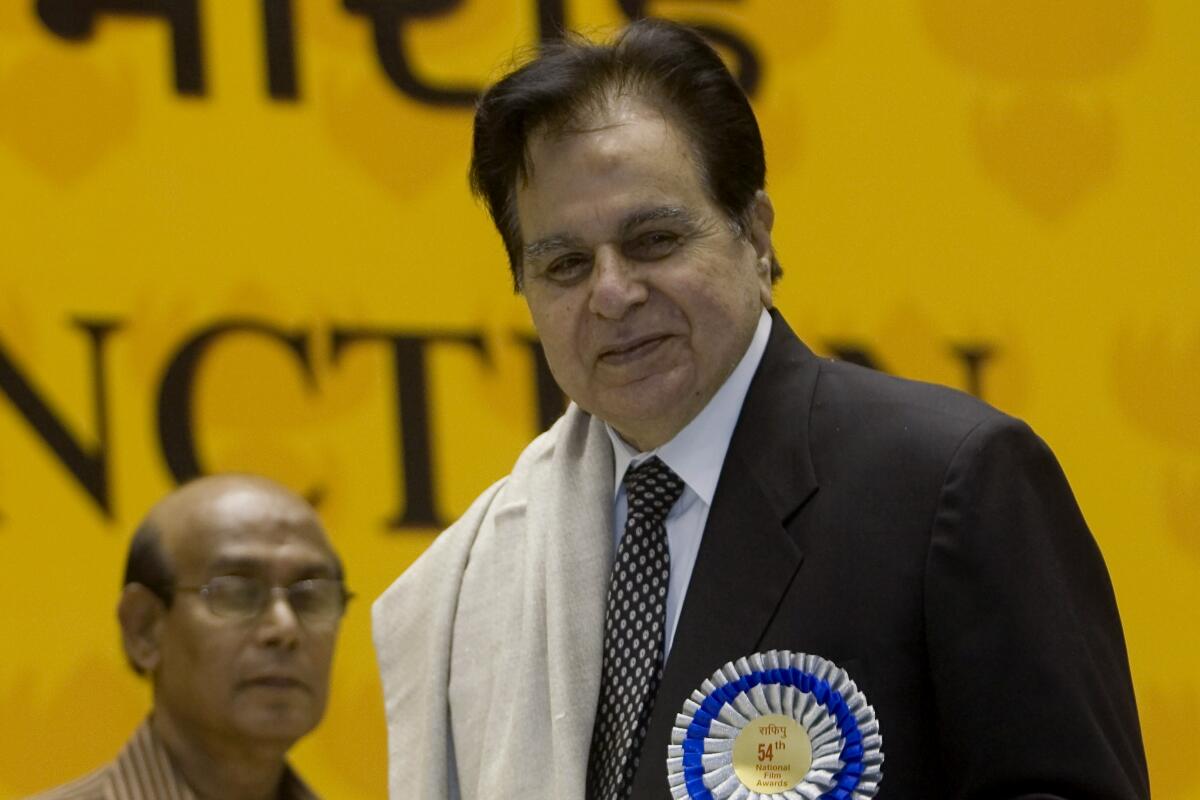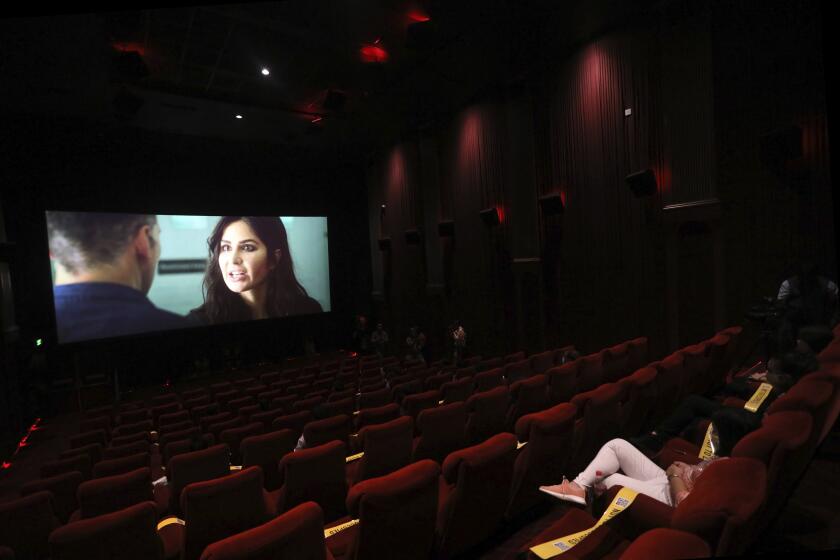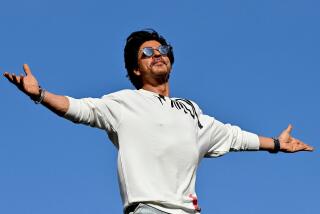Dilip Kumar, Bollywood’s great ‘Tragedy King,’ dies at 98

NEW DELHI — Bollywood icon Dilip Kumar, hailed as the “Tragedy King” and lauded as one of Hindi cinema’s greatest actors, died Wednesday in a Mumbai hospital after a prolonged illness. He was 98.
The “Tragedy King” title came from Kumar’s numerous serious roles. In several, his character died as a frustrated lover and a drunkard. He also was known as Bollywood’s only Method actor because of his expressive performances.
Kumar was hospitalized twice last month after he complained of breathlessness, and his family tweeted news of his death “with a heavy heart and profound grief.”
“Dilip Kumar will be remembered as a cinematic legend. He was blessed with unparalleled brilliance, due to which audiences across generations were enthralled. His passing away is a loss to our cultural world,” Indian Prime Minister Narendra Modi said in a tweet that offered condolences to Kumar’s family and admirers.
“An institution has gone,” Bollywood superstar Amitabh Bachchan tweeted. “Whenever the history of Indian Cinema will be written, it shall always be ‘before Dilip Kumar, and after Dilip Kumar.’”
“It’s the end of an era,” filmmaker Madhur Bhandarkar said.
Bollywood, the world’s biggest movie industry, is toning down its lavish productions as India endures one of the planet’s worst COVID-19 outbreaks.
He was born Muhammad Yusuf Khan on Dec. 11, 1922. His Pathan family hailed from Peshawar, in what became Pakistan after the Partition, and he visited his ancestral home in the late 1980s.
Kumar, a Muslim, was hugely popular among cinema lovers in Pakistan as well.
Pakistan Prime Minister Imran Khan said he was saddened to learn of Kumar’s death. “For my generation, Dilip Kumar was the greatest and most versatile actor,” he tweeted.
Khan also recalled Kumar’s generosity in helping to raise funds in Pakistan and London for a trust to set up cancer hospitals in his mother’s memory.
An underage ticket scalper is sent to a boys’ home near the end of Soviet-era Afghanistan in Shahrbanoo Sadat’s Bollywood-tinged drama “The Orphanage.”
He changed his name to Dilip Kumar upon his Bollywood debut in “Jwar Bhata,” or “Sea Tides,” in 1944.
His career in Bollywood, the Hindi-language film industry centered in Mumbai, spanned more than six decades and 60 films. His first major box-office hits were “Jugnu,” or “Firefly,” in 1947, in which he starred alongside Noor Jehan, and the 1948 film “Shaheed,” or “Martyr.”
He played a variety of characters: a romantic hero in “Andaz,” a swashbuckler in “Aan,” a dramatic drunkard in “Devdas,” a comic role in “Azaad,” a Muslim prince in the historical epic “Mughal-e-Azam” and a robber in the socially themed movie “Ganga Jamuna.”
Mehboob Khan’s blockbuster “Aan” in 1952 was Kumar’s first film in Technicolor and was among a string of light-hearted roles he took at the suggestion of his psychiatrist to shed his “Tragedy King” image.
Get our daily Entertainment newsletter
Get the day's top stories on Hollywood, film, television, music, arts, culture and more.
You may occasionally receive promotional content from the Los Angeles Times.
He starred in many socially oriented drama films such as “Footpath,” “Naya Daur” (“New Era”), “Musafir” (“Traveler”) and “Paigham” (“Message”) in the 1950s.
In 1966, Dilip Kumar married Saira Banu, who was 22 years his junior, and the couple acted together in “Gopi,” “Sagina Mahato” and “Bairaag.” They had no children.
In 1961, Kumar produced and starred in “Ganga Jamuna,” in which he and his brother Nasir Khan played the title roles. It was the only film he produced. Indian media reports say he declined the role of Sherif Ali in David Lean’s “Lawrence of Arabia” in 1962. The role went to Egyptian actor Omar Sharif.
He took a break in the late ’70s but returned with a character role in the successful “Kranti,” or “Revolution,” in 1981. He continued playing key roles in films such as “Shakti,” “Karma” and “Saudagar.” His last film was “Qila” (“Fort”) in 1998.
In 1994, he was given the Dadasaheb Phalke award, the highest honor for contributions to Indian cinema. He also served in the upper house of the Indian Parliament after being nominated for a six-year term.
More to Read
Sign up for Essential California
The most important California stories and recommendations in your inbox every morning.
You may occasionally receive promotional content from the Los Angeles Times.










